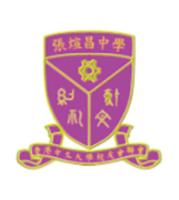| Language Policy |
In response to the new policy of medium of instruction in secondary schools, the school has paid more attention to helping students to lay a solid foundation in English. English is used in Mathematics and Science lessons in junior forms so as to increase their exposure to English. In senior forms, English is widely used in teaching but Chinese will still be used depending on the needs of students and the nature of the subjects taught. To create a language rich learning environment, the English and Chinese departments have organized different programmes such as Language Subjects Academic Day, English Speaking Day and study tours to cater for different needs. Interesting English activities are often organized for students by our NET teacher, the English Department and the English Society. Moreover, Morning Reading Time and an Extensive Reading Award Scheme are provided to students so as to help them develop a good reading habit. Last but not least, an English-Chinese anthology called 'Rendezvous' is published every year to acknowledge students’ good work in writing. |
| Learning and Teaching Strategies |
To cater for the needs of students with different abilities, a student-centered curriculum is adopted. In junior forms, we emphasize 'Bilingual and Triliterate Learning', STEAM social studies and project learning. There are special English, Chinese and Mathematics classes for under privileged or elite students. In senior forms, we make students interact more actively in the process of teaching and learning. We also provide tutorials, talks, seminars and quizzes to prepare students for public examinations. Every subject has its own subject policy and work plan. With the implementation of the senior secondary curriculum, a committee involving various panel heads was established to advise the school on relevant matters. |
| School-based curriculum |
1. Electives: 2X and 3X. Senior secondary students can choose 2-3 out of the 11 electives offered by the school.<br> 2. Curriculum highlights: Taking the abilities of students into consideration, teachers design and plan the curriculums carefully so as to help students learn effectively. Since the Senior Secondary Curriculum emphasizes giving students other learning experiences, we have organized different activities and talks on life planning for students to widen their horizons in areas like sports, art, music, morals and careers, etc. |
| Approach to Catering for Learner Diversity |
To cater for student diversity, split class teaching in English, Chinese and Mathematics is arranged. Tutorials are conducted after school to help students to keep up with the curriculum. In order to understand students’ needs better and nurture the personal growth of students, the school has arranged two class teachers for each class. For students with special needs, members of the Student Development Committee, co-working with an educational psychologist and specialists, will offer assistance to them and their parents. |
| Approach to Integrated Education |
The Student Support Coordination Committee, which consists of our Vice Principal, Academic Master, Counselling Master, Discipline Master, a social worker, counselors and an education psychologist has been established in order to develop appropriate support measures, adjust internal school examinations and apply special public examination arrangements for students with Special Education Needs (SEN). The Student Development Committee is set up to formulate, plan and implement various training and inclusive activities. By working closely with the EDB and professional teams, the Committee aims at promoting the personal growth of our students. With the Learning Support Grant, School-based After-school Learning and Support Programmes Grant and Diversity Learning Grant, our Committee provides a variety of training programmes and activities. |
| Education Support for Non-Chinese Speaking (NCS) Students |
|
| Home-School Co-operation |
With the Parent Teacher Association and parent manager, we have made strong connections with parents who show concern for the school life and growth of students. Seminars and workshops are often organized by the PTA to help parents improve their communication skills with their children. Parents are also invited to express their views about the school management through their participation in the school administration consultation conference. The parent-child volunteer team led by the school social worker is distinguished for its work done for the school and the community and has won awards in the Yuen Long Outstanding Volunteers Competitions. |
| School Ethos |
The Teacher-student relationship in the school is harmonious. We adopt a whole-school approach to guidance. Moreover, the implementation of the Discipline-and-Guidance-in-One Policy has been proved effective in developing good behaviour in students. The Peer Guidance Scheme is run to cater for the needs of junior form students. We also have the TCSS Holistic Award Scheme and scholarships to acknowledge students' achievements in academic performance, conduct, reading, service and co-curricular activities. |
| School Development Plan |
1. To strengthen students’ language abilities.<br>2. To encourage scientific research and resource variability <br>3. To promote reading to widen students' horizons.<br>4. To support students with learning problems.<br>5. To enhance students’ self-image and sense of belonging to the school. |
| Teacher Professional Training and Development |
Our teachers have participated actively in workshops, courses on teaching and sharing sessions with peer school teachers. To put into practice what they have learned, teachers often take the initiative to arrange peer observation in class and have professional exchange on the effectiveness of their teaching methods. Our school has joined the School-based Support Services provided by the EDB. |
| Life-wide Learning |
More than 50 clubs and societies under 5 categories academic societies, social service teams, interest groups, sports teams and performance groups have been established for students in the school. To enhance life-wide learning, all S.1 students are required to join at least one club in two categories. S.4 students are encouraged to work as committee members for the groups they join. |
